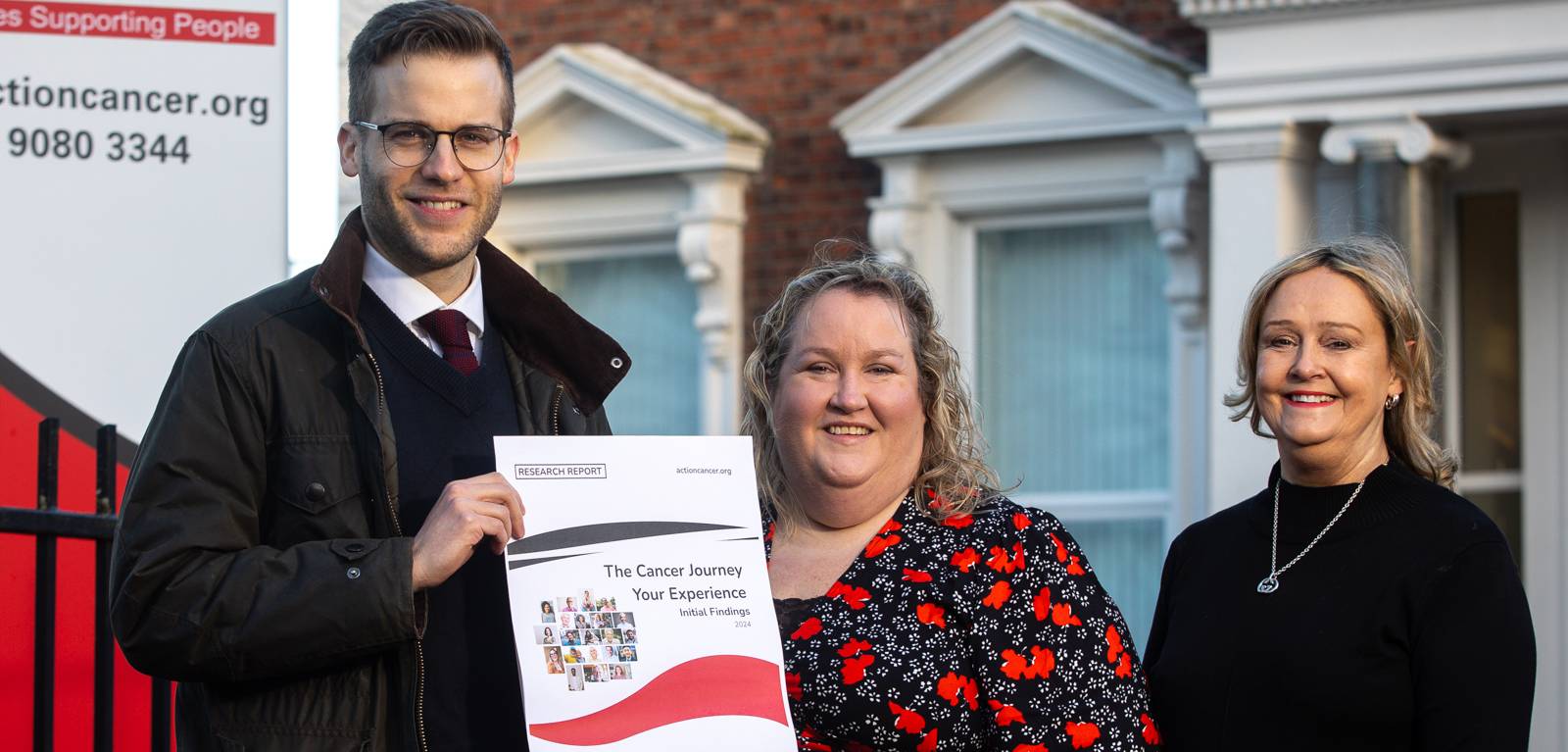Queen's and Action Cancer Unveil Insights from New Cancer Survey
Improved mental health support, along with information on and access to community services, is needed to improve cancer care experiences in Northern Ireland.

Leading, local cancer charity Action Cancer has captured the views of over 1,000 patients and loved ones from across Northern Ireland. The anonymous survey, aimed to assess the experiences and levels of satisfaction of cancer patients in Northern Ireland, and their loved ones, across different aspects of care for five distinct phases of the ‘Cancer Journey’ with a view to diverting resources and additional support to those most in need.
From May to August 2023, online responses were received from 1,011 eligible patients (67%) and loved ones (33%), from all corners of Northern Ireland covering over 30 individual cancer types, with data analysed by researchers from Queen’s University Belfast.
Action Cancer has created a report that presents the initial findings from this undertaking, to inform its own provision of integrated services across organisations and communities, and the services of other stakeholders in the Department of Health (DoH), its Trusts, and beyond.
Dr Caroline Hughes, Health Improvement and Evaluation Manager at Action Cancer, said:
“With this survey, we hoped to give a voice to the people best qualified to inform us about the Cancer Journey – those who are or have been on it. Our objective was to gain insights at every stage, understanding what mattered to people, identifying successes, challenges, and areas for improvement. This encompasses experiences in hospitals, communities, and interactions with charities and support services.”
Dr Dan Middleton, Cancer Epidemiologist from Queen’s University Belfast, said:
“Data indicates a high level of satisfaction with general care for a large proportion of those diagnosed or affected by cancer. Nevertheless, there are clear patterns of dissatisfaction for a large proportion of people in specific areas of cancer care, regardless of the cancer journey phase. Notably, more than half expressed dissatisfaction with the available Mental Health Support, and approximately 40% indicated dissatisfaction with information on community services and access to such services, highlighting the need for targeted improvements in specific aspects of cancer care."
Geraldine Kerr, Head of Professional Services at Action Cancer, added:
"The NI Cancer Strategy 2022-2032 acknowledges the vital role of mental health care in cancer, highlighting the reliance on the voluntary/community sector for such support. People affected by cancer are telling us they need support. They need support with their mental health. But there is no funding, which is required for ongoing service delivery. It is critical there is a genuine partnership working between the public and voluntary sectors and that the voluntary sector is appropriately funded for the delivery of these services.”
The report can be accessed by visiting: www.actioncancer.org/cancerjourney
Media
Media enquiries to Queen’s Communications Office via email: comms.office@qub.ac.uk or tel: (028) 9097 3091.